At the university’s third annual Banned Books Read-In Wednesday night, students, faculty and alumni read from and talked about several titles known for being challenged and banned, including “The Handmaid’s Tale,” “The Giver,” “Monday’s Not Coming” and “Slaughterhouse-Five.”
The event, hosted in Taylor Hall by Stephanie Smith, an assistant professor in the School of Media and Journalism, started off with a few words from Smith and Paul Haridakis, the director of the School of Communication Studies.
“Books matter, and ideas matter, and these books have formed our lives,” Smith said.
Original works based on the ideas frequently challenged in books were also read during the read-in.
Smith said reminding students the right to read is a part of the First Amendment is incredibly important in the face of an increase in challenges. Haridakis said one of the goals of the event was to form a community around awareness and to “carry on the message” beyond the end of the event.
Jo Wilson, a library science graduate student, read a passage from “Mockingjay,” the last book in “The Hunger Games” trilogy.
“I grew up in a fundamentalist Christian home where my parents had a lot of restrictions on what I could read, and I would read books behind their backs, and that was fundamental for me,” they said. “Book banning is a subject that is very near and dear to librarians’ hearts and [to] aspiring librarians’.”
Flyers from the American Library Association’s Office for Intellectual Freedom were left around the room, listing the top 13 banned and challenged books of 2022, along with the reasoning for why.
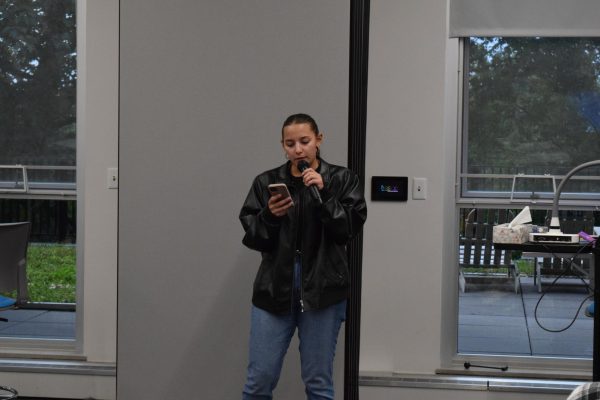
The top book on the list, “Gender Queer” by Maia Kobabe, was challenged for including LGBTQIA+ content and content that was claimed to be sexually explicit, as was “All Boys Aren’t Blue” by George M. Johnson, the second book on the list.
In an email, School of Information Assistant Professor Mary Ann Stahr said the number of challenges has “risen exponentially” over the last few years and they “[appear] to be politically motivated.”
The third entry on the American Library Association’s list, “The Bluest Eye” by Toni Morrison, was challenged for including “EDI content,” demonstrating how politicized notions of diversity, equity and inclusion have become.
Belinda Boon, a professor for the School of Information, reiterated these challenges, more often than not, are politically based.
“What we’ve seen since, really, the beginning of the school year in fall of 2021, is a concerted effort by very conservative groups who are well-funded, to unilaterally object to any materials that have to do with race or racism, racial oppression, with LGBT issues or with sexuality,” she said.
She referenced a challenge that took place in Hudson City Schools in early 2022, where community members gathered to voice their support for librarians and for the titles being challenged.
The American Library Association’s Office for Intellectual Freedom reported 156 challenges in 2020 and 729 challenges in 2021, an increase of over 300%.
Stahr also said challenges specifically in Ohio tripled from 2021 to 2022.
“Kent State University iSchool hopes to provide a Challenged Book Toolkit to Ohio public and school librarians to help them prepare for and defend a book challenge,” she said.
The American Library Association’s Office for Intellectual Freedom recently reported the first eight months of 2023 have seen a 20% increase in challenges from the same period of time in 2022.
The read-in was intended to bring awareness to these issues and also to celebrate the books being challenged. Students took part in a costume contest themed around challenged books and materials. The winners were dressed as David Bowie, the titular character of Monday’s Not Coming and Charlie from The Perks of Being a Wallflower.
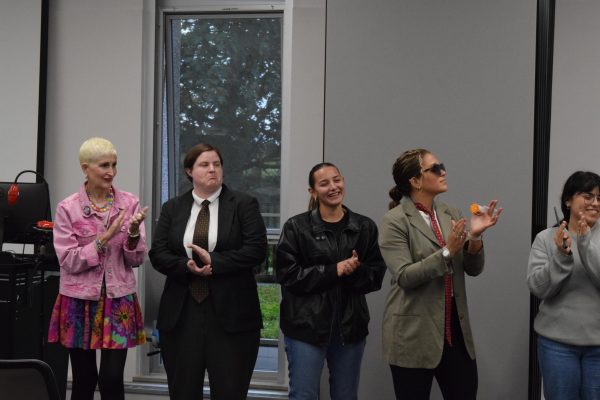
There was also a raffle near the end of the event which almost all attendees entered. Prizes included gift bags from some of the event’s sponsors: the School of Communication Studies, the School of Peace & Conflict Studies and the Wick Poetry Center.
Among the attendees of the event was a representative from the League of Women Voters, who emphasized the importance of voting in all elections, rather than just major presidential elections, as a way to fight back against book challenges and bans.
Boon said other ways to fight these challenges in local communities are to support librarians and stay informed.
“When you are in a library and on the receiving end of a challenge, [you feel] very isolated and very alone – and those folks need to know that they are not alone,” she said. “It’s important for students and the general public to make their voices heard, as well.
“As uncomfortable as we may be about some topics or some experiences or some viewpoints, we always have the option not to read it, not to find out, not to know – but we don’t have the right to tell other people what they can access.”
Mary Rose Bihler is a copy editor. Contact her at [email protected].


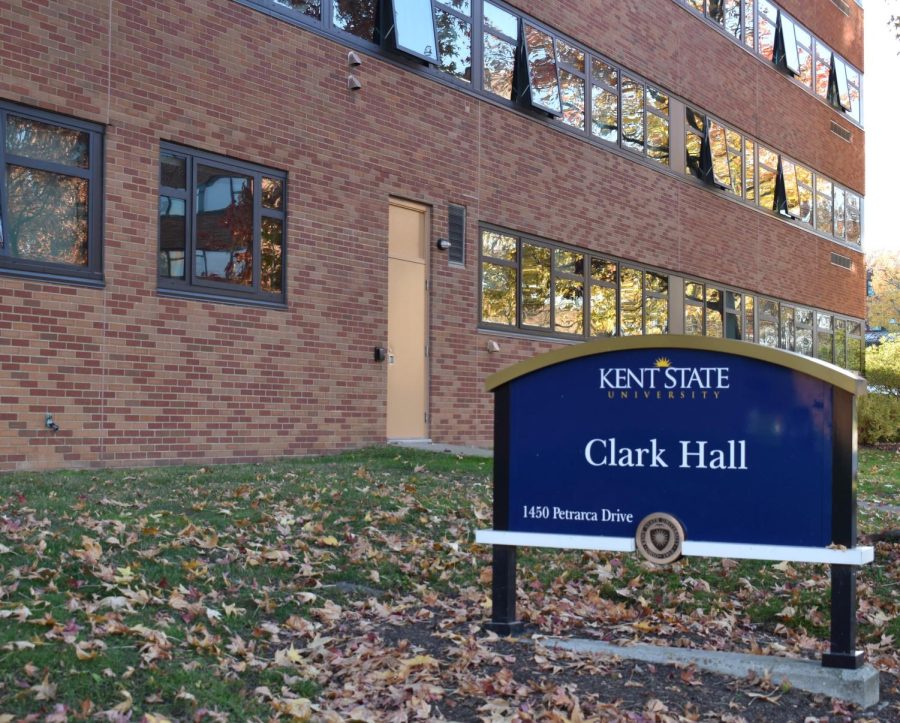
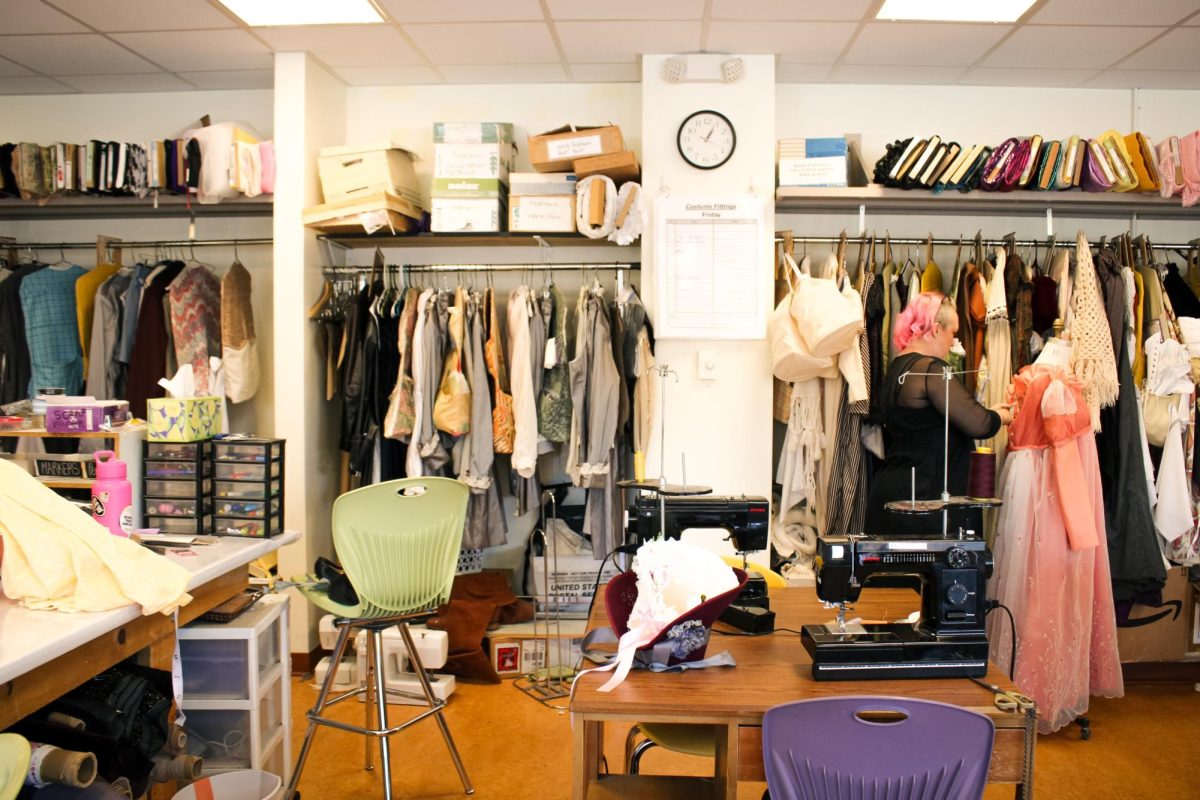
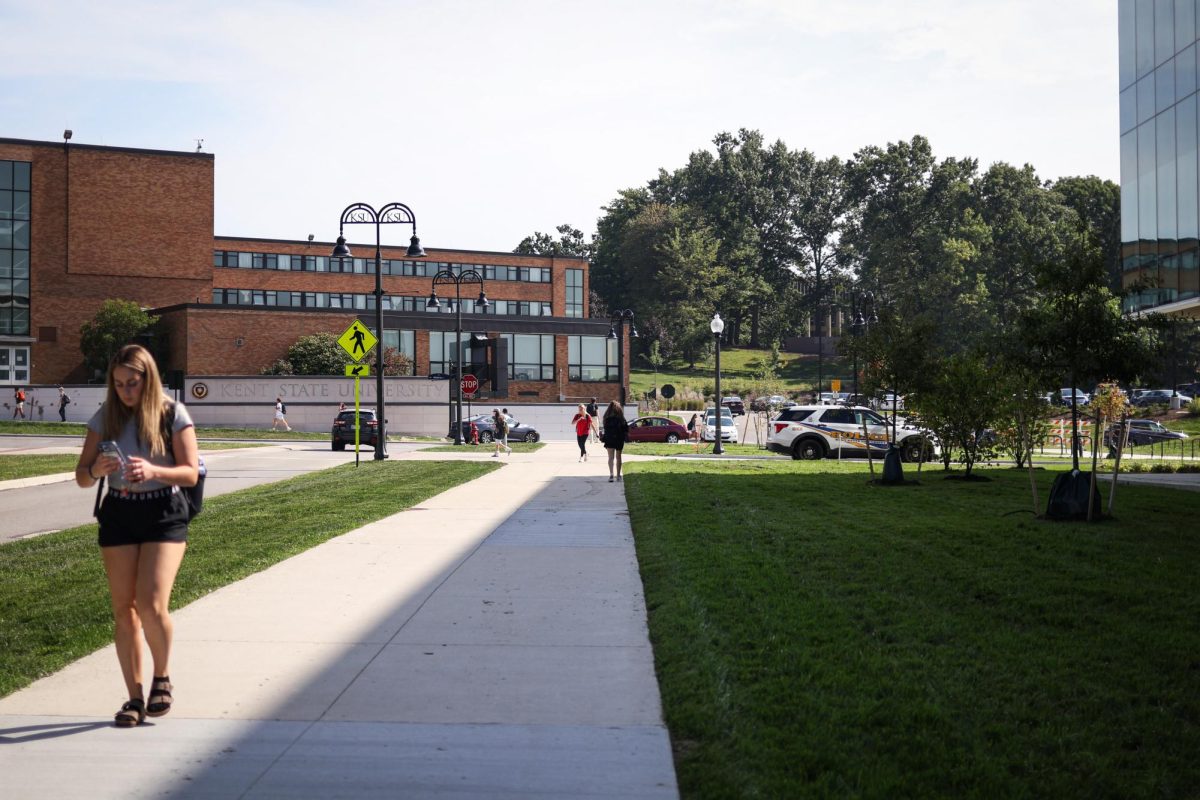
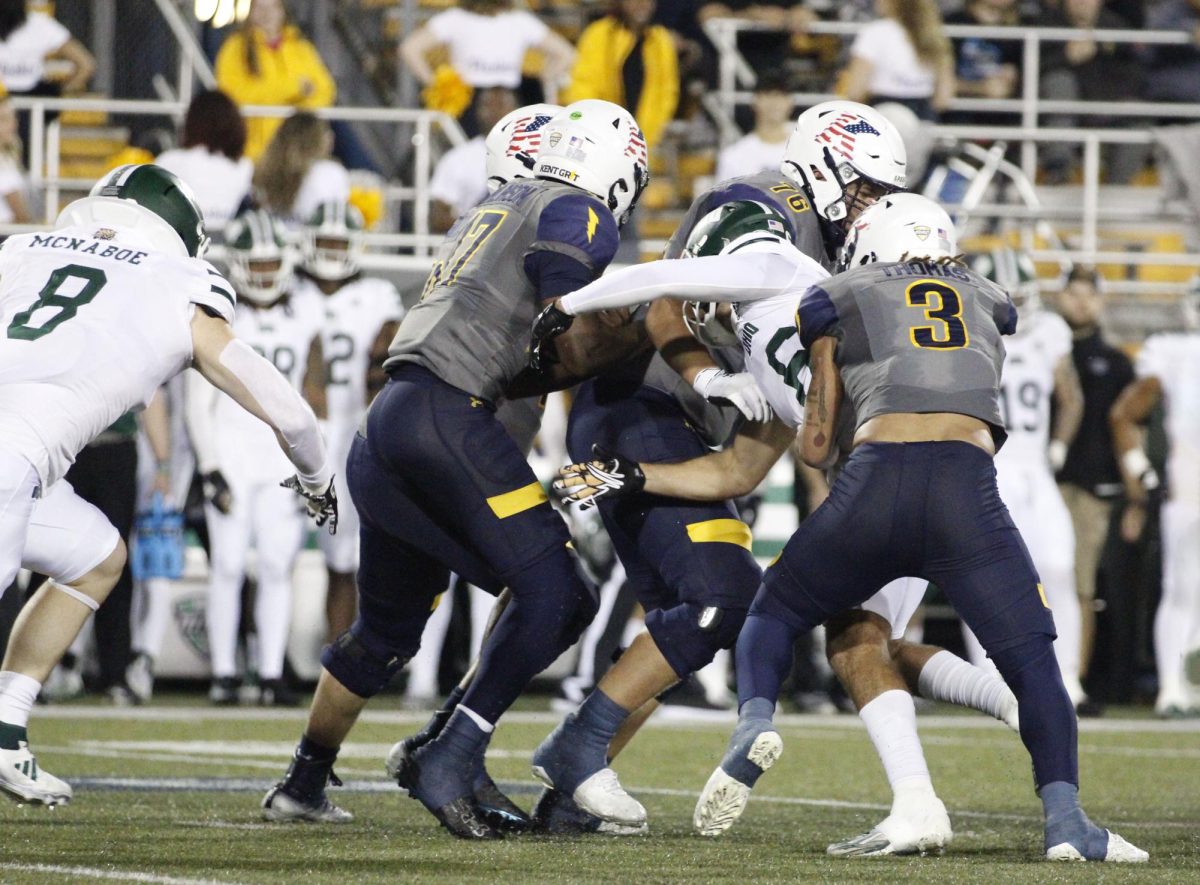




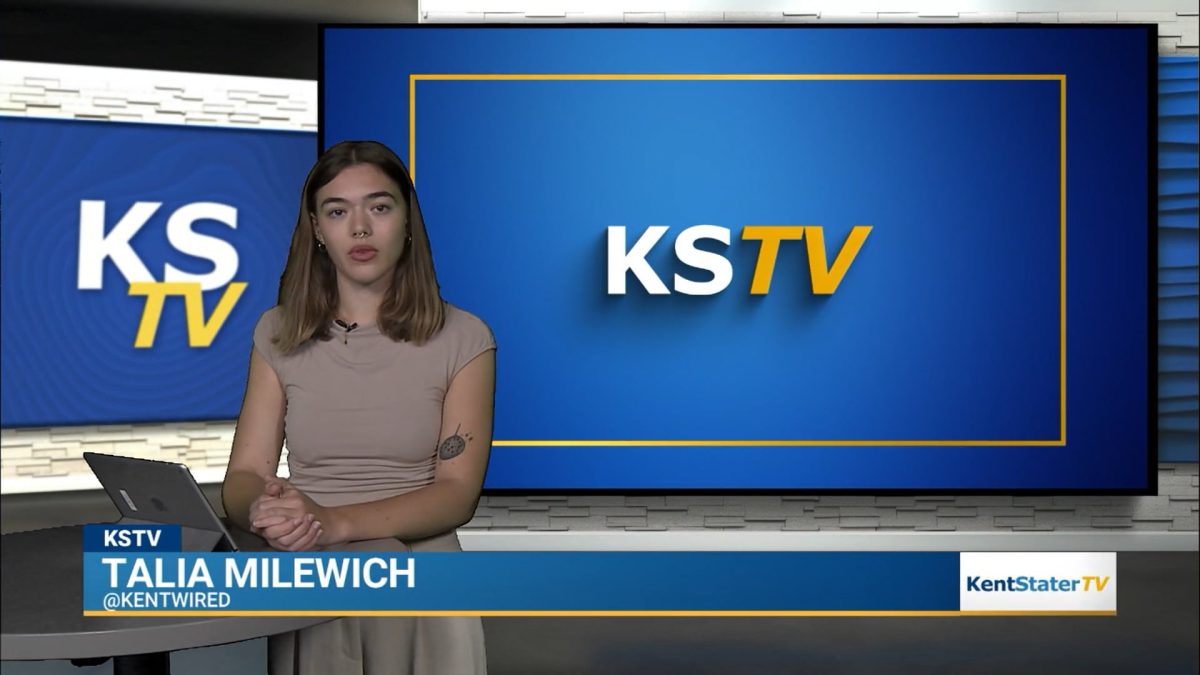
Theo Veclotch • Sep 29, 2023 at 12:18 pm
Great article! Politicians have no right to ban books or change dialogue.
Theo Veclotch • Sep 29, 2023 at 12:14 pm
Great article Mary Rose! Politicians are trying take away our rights and we need to ban together to stop it.